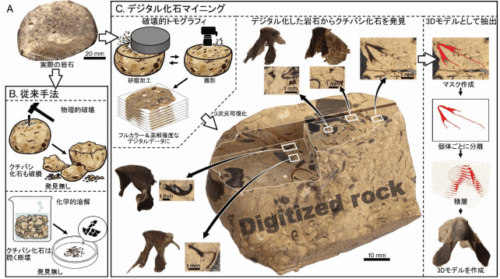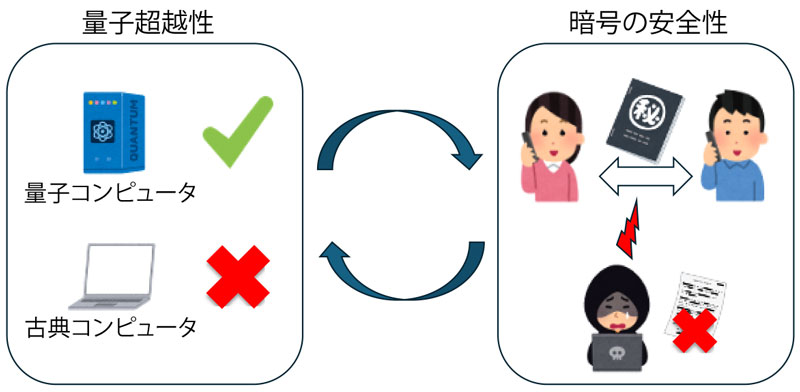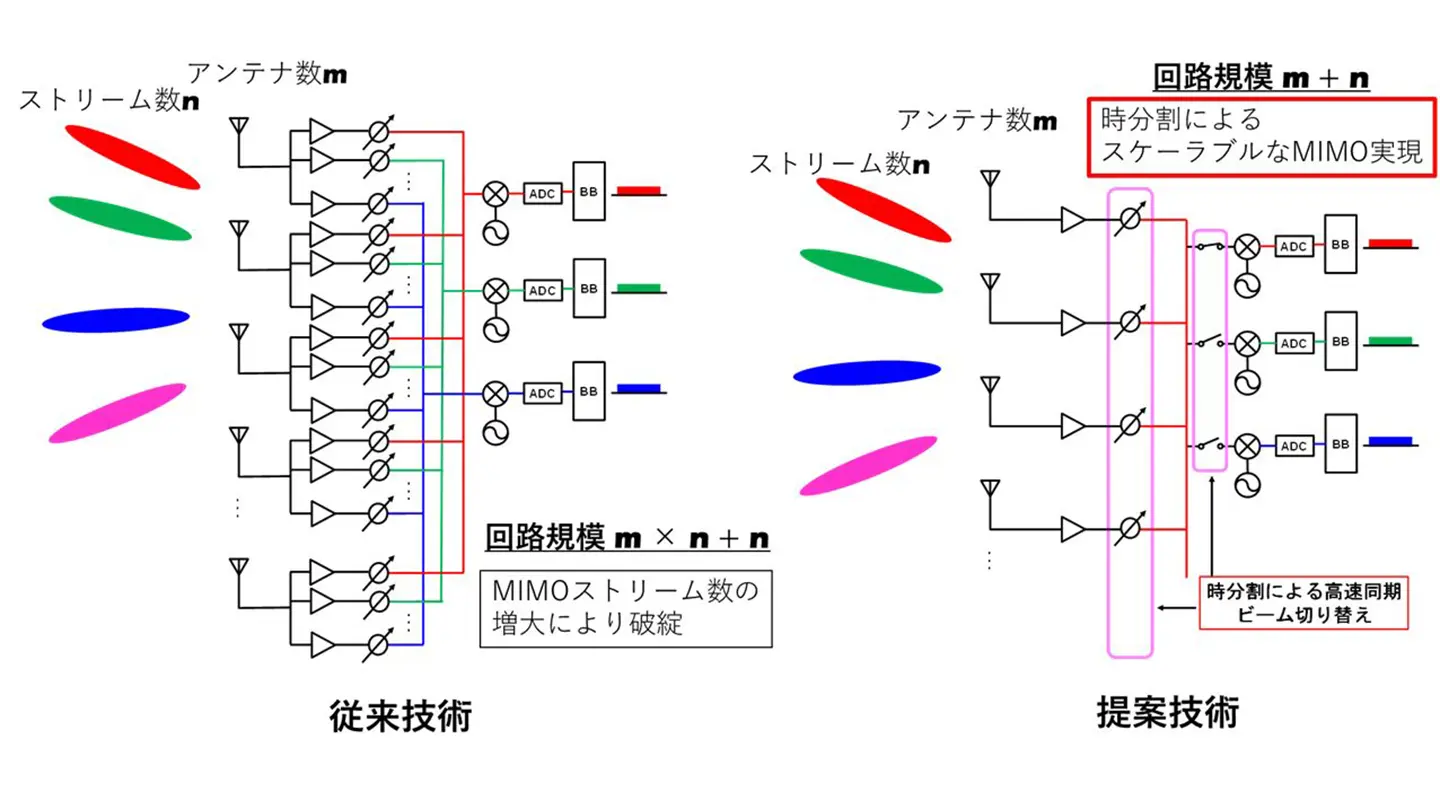2025-06-27 北海道大学,高輝度光科学研究センター

図 1. 化石のデジタルマイニング。本研究で発見したイカ類クチバシ化石は、多量の化石を含む岩石(A)中に埋没している。先行研究で 100 年以上にわたって用いられてきた、物理的破壊や化学的溶解などの手法では、それらは抽出不可能だった(B)。デジタルマイニングでは(C)、まず破壊型トモグラフィにより岩石をまるごとデジタル化し、内部をフルカラー・高解像度で可視化する。その中から発見された化石は、全てデジタル 3D モデルとして、完全な形を保ったまま岩石から分離される。
<関連情報>
- https://www.hokudai.ac.jp/news/2025/06/1-21.html
- https://www.hokudai.ac.jp/news/pdf/250627_pr.pdf
- https://www.science.org/doi/10.1126/science.adu6248
デジタル化石マイニングが解明したイカ類の起源と放散 Origin and radiation of squids revealed by digital fossil-mining
Shin Ikegami, Yusuke Takeda, Jörg Mutterlose, and Yasuhiro Iba
Science Published:26 Jun 2025
DOI:https://doi.org/10.1126/science.adu6248
Editor’s summary
Cephalopods are one of the most successful marine invertebrates in modern oceans, and they have a 500-million-year-old history. However, we know very little about their evolution because soft-bodied animals rarely fossilize. Ikegami et al. developed an approach to reveal squid fossils, focusing on their beaks, the sole hard component of their bodies. They found that squids radiated rapidly after shedding their shells, reaching high levels of diversity by 100 million years ago. This finding shows both that squid body forms led to early success and that their radiation was not due to the end-Cretaceous extinction event. —Sacha Vignieri
Abstract
The evolution of soft-bodied squids, which provide a major part of the biomass in modern oceans globally, is poorly understood owing to their patchy fossil record. We provide a comprehensive evolutionary history of squids through “digital fossil-mining” techniques, revealing a new lagerstätte. The more than 250 fossil beaks of 40 species show that squids originated and rapidly radiated by 100 million years ago. Our data suggest that the radical shift from heavily shelled, slowly moving cephalopods to soft-bodied forms did not result from the end-Cretaceous mass extinction (66 million years ago). Early squids had already formed large populations, and their biomass exceeded that of ammonites and fishes. They pioneered the modern-type marine ecosystem as intelligent, fast swimmers.



